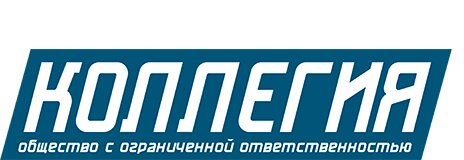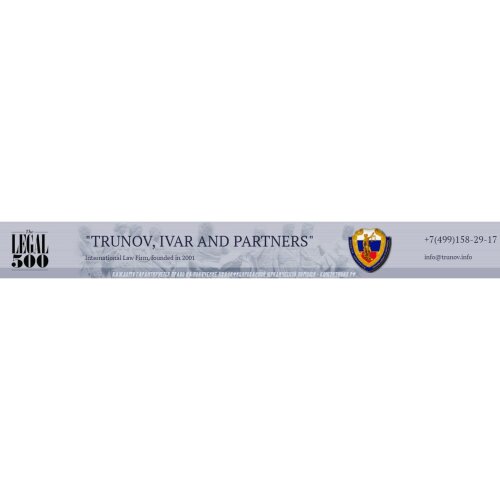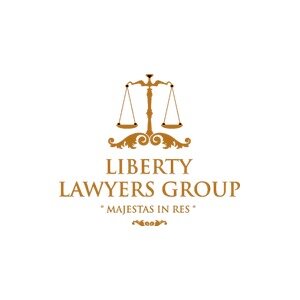Best Education Law Lawyers in Russia
Share your needs with us, get contacted by law firms.
Free. Takes 2 min.
Or refine your search by selecting a city:
List of the best lawyers in Russia
About Education Law in Russia
Education Law in Russia governs the legal framework surrounding educational activities in the country. The main legislative act is the Federal Law on Education in the Russian Federation, which outlines the state's educational policy, rights and obligations of participants in the educational process, and organizational principles of educational institutions. The law aims to ensure access to quality education, protect the rights of students and educators, and regulate the operations of public and private educational entities.
Why You May Need a Lawyer
There are several common situations where legal assistance in Education Law might be necessary:
- Disputes with Educational Institutions: Parents or students may need legal help in cases related to admission, expulsion, or unfair treatment within educational settings.
- Compliance Issues: Educational institutions may require legal advice on compliance with federal or regional education standards and regulations.
- Teacher-Employer Disputes: Educators may seek legal guidance in employment-related issues, contracts, or unfair dismissal.
- Special Education Needs: Legal counsel can be vital for navigating the requirements and ensuring adequate support for students with disabilities.
- Bullying and Discrimination: Addressing cases of bullying or discrimination may require legal intervention to ensure safe and inclusive educational environments.
Local Laws Overview
The key elements of local laws regarding Education Law in Russia include:
- Federal Law on Education: Establishes the legal framework for the operation of educational systems, rights, and obligations.
- Regional Regulations: Regions may have additional regulations that provide specific rules and standards for educational institutions within their jurisdiction.
- Rights of Students and Parents: The law outlines various rights, including the right to free education, choice of educational institution, and participation in the management of schools.
- Educational Standards: Establishes the minimum requirements for educational programs and qualifications to ensure consistent and high-quality education across the country.
- Licensing and Accreditation: Educational institutions must comply with licensing and accreditation requirements to lawfully operate and award recognized certificates or diplomas.
Frequently Asked Questions
What is the role of the Federal Law on Education in Russia?
The Federal Law on Education is the foundational legal document governing educational practices in Russia. It establishes the principles of state educational policy and defines the legal status of educational institutions, rights, and duties of participants in the educational process, and state guarantees for the realization of the right to education.
How can I legally address an issue of discrimination in a school?
Discrimination issues can be addressed by filing a complaint with the school's administration and, if necessary, with the local education authorities. A lawyer specializing in Education Law can assist in navigating the legal process and, if needed, take the case to court.
What are the rights of students with disabilities in Russian schools?
Students with disabilities have the right to access education in inclusive settings or specialized institutions. Russian law mandates necessary accommodations and supportive measures to ensure equal educational opportunities.
Can foreign students study in Russia, and what legal considerations apply?
Foreign students can study in Russia but must comply with visa and registration requirements. Legal advice may be needed to ensure compliance with immigration laws and understanding the academic institution's specific entry requirements.
What should I do if I face expulsion from an educational institution?
If facing expulsion, it is crucial to review the policies and regulations of the institution and seek legal advice promptly. A lawyer can help ascertain whether the expulsion was conducted lawfully and explore options for appeal or negotiation.
Are private educational institutions regulated differently than public ones?
Yes, while both types of institutions must meet basic federal standards, private institutions often have added autonomy regarding curriculum and management. However, they are still subject to licensing and accreditation requirements.
How can one challenge an unfair exam grading decision in Russia?
Grading disputes can initially be challenged through the educational institution's formal appeal process. If unresolved, further legal action may be pursued with the assistance of a lawyer.
What is the procedure for changing schools or educational programs in Russia?
Changing schools or programs typically requires approval from both the sending and receiving institutions. Understanding the regulatory framework and necessary legal requirements can simplify the transition.
Is homeschooling legal in Russia?
Yes, homeschooling is legal in Russia. Parents choosing this option must ensure their child's education aligns with the national educational standards and may need to register with local educational authorities.
What is the role of parental involvement in the Russian educational system?
Parents have the right to be involved in their child's education, including participating in school governance. They can be active in school boards and committees to offer input into educational processes and decision-making.
Additional Resources
For further information or assistance, consider the following resources:
- Ministry of Education and Science of the Russian Federation: Provides official information and guidance on educational policies and legislation.
- Russian Federal Service for Supervision in Education and Science: A regulatory body ensuring compliance with educational standards and laws.
- Local Educational Authorities: Regional departments offer support on local education policies and regulations.
- Educational Legal Aid Organizations: Nonprofit organizations may provide pro bono legal services or advice related to educational law issues.
Next Steps
If you require legal assistance in Education Law, consider the following steps:
- Identify the Issue: Clearly define the legal issue or concern you face, which will help in seeking targeted advice.
- Consult a Lawyer: Contact a legal professional specializing in Education Law. Prepare relevant documents and details of your case for the consultation.
- Gather Documentation: Collect all relevant paperwork, such as contracts, notices, and correspondence with educational institutions, to support your case.
- Explore Resolution Options: Discuss with your lawyer the possible courses of action, including negotiation, mediation, or formal legal proceedings.
- Stay Informed: Keep updated with any changes in local or federal education laws that might affect your situation.
With proper guidance and legal support, navigating the complexities of Education Law in Russia becomes more manageable and less daunting.
Lawzana helps you find the best lawyers and law firms in Russia through a curated and pre-screened list of qualified legal professionals. Our platform offers rankings and detailed profiles of attorneys and law firms, allowing you to compare based on practice areas, including Education Law, experience, and client feedback.
Each profile includes a description of the firm's areas of practice, client reviews, team members and partners, year of establishment, spoken languages, office locations, contact information, social media presence, and any published articles or resources. Most firms on our platform speak English and are experienced in both local and international legal matters.
Get a quote from top-rated law firms in Russia — quickly, securely, and without unnecessary hassle.
Disclaimer:
The information provided on this page is for general informational purposes only and does not constitute legal advice. While we strive to ensure the accuracy and relevance of the content, legal information may change over time, and interpretations of the law can vary. You should always consult with a qualified legal professional for advice specific to your situation.
We disclaim all liability for actions taken or not taken based on the content of this page. If you believe any information is incorrect or outdated, please contact us, and we will review and update it where appropriate.
Browse education law law firms by city in Russia
Refine your search by selecting a city.
















